I pursued a freelance writing career because of the fantasy it dangled: fulfilling days spent entirely on writing. In reality, becoming a freelance writer means you spend about 20% of your time actually writing. Most of your time is spent running a full-blown online business, which comes with a full set of responsibilities, from accounting and bookkeeping to marketing and sales.
While it’s disheartening to bid farewell to the dream of writing all day, I’m doing what I can to increase my writing time (and my income) by streamlining my other systems. These are the eight tools I rely on every day that have helped me earn $6,000 a month, working about five hours a day—even though they have little to do with the actual writing.
Notion is the home base of my business. It’s an all-in-one workspace where you can write, schedule, collaborate, and basically organize your entire business. It’s also aesthetically pleasing, which is honestly a motivator for me.
There are thousands of Notion templates (both free and paid) available—these are the three I use every day. Without them, there’s no doubt I’d be running around like a headless chicken.
The weekly agenda
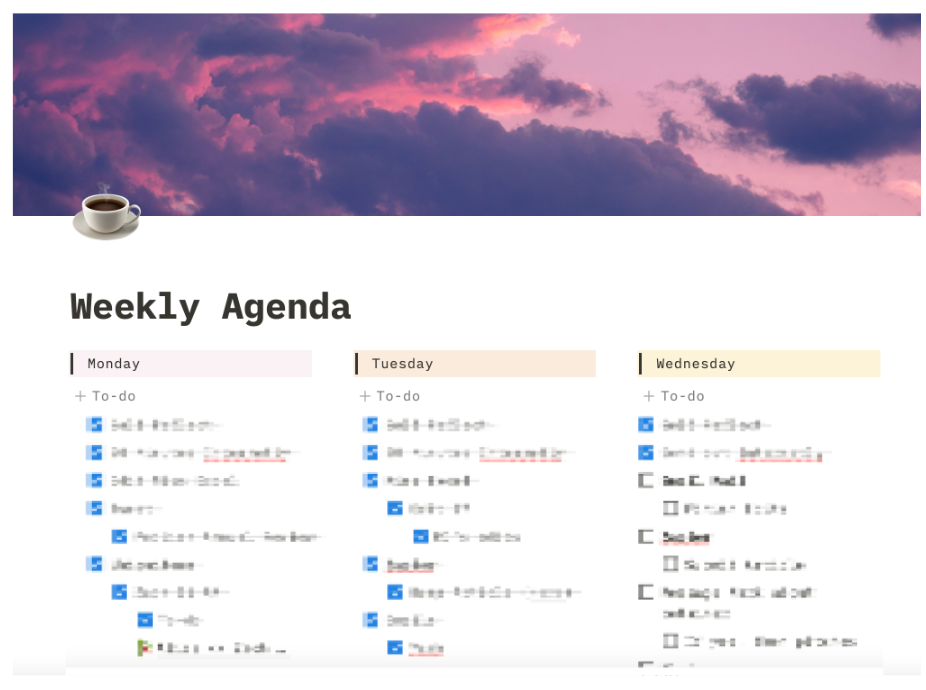
What I love about this template is that I can see each day of the week from a bird’s-eye view. By seeing the timeline, I’m able to prioritize tasks based on due dates and expected workload (reducing the chance of pulling a frenzied all-nighter). Plus, putting these tasks onto digital paper frees up precious headspace.
Calendar
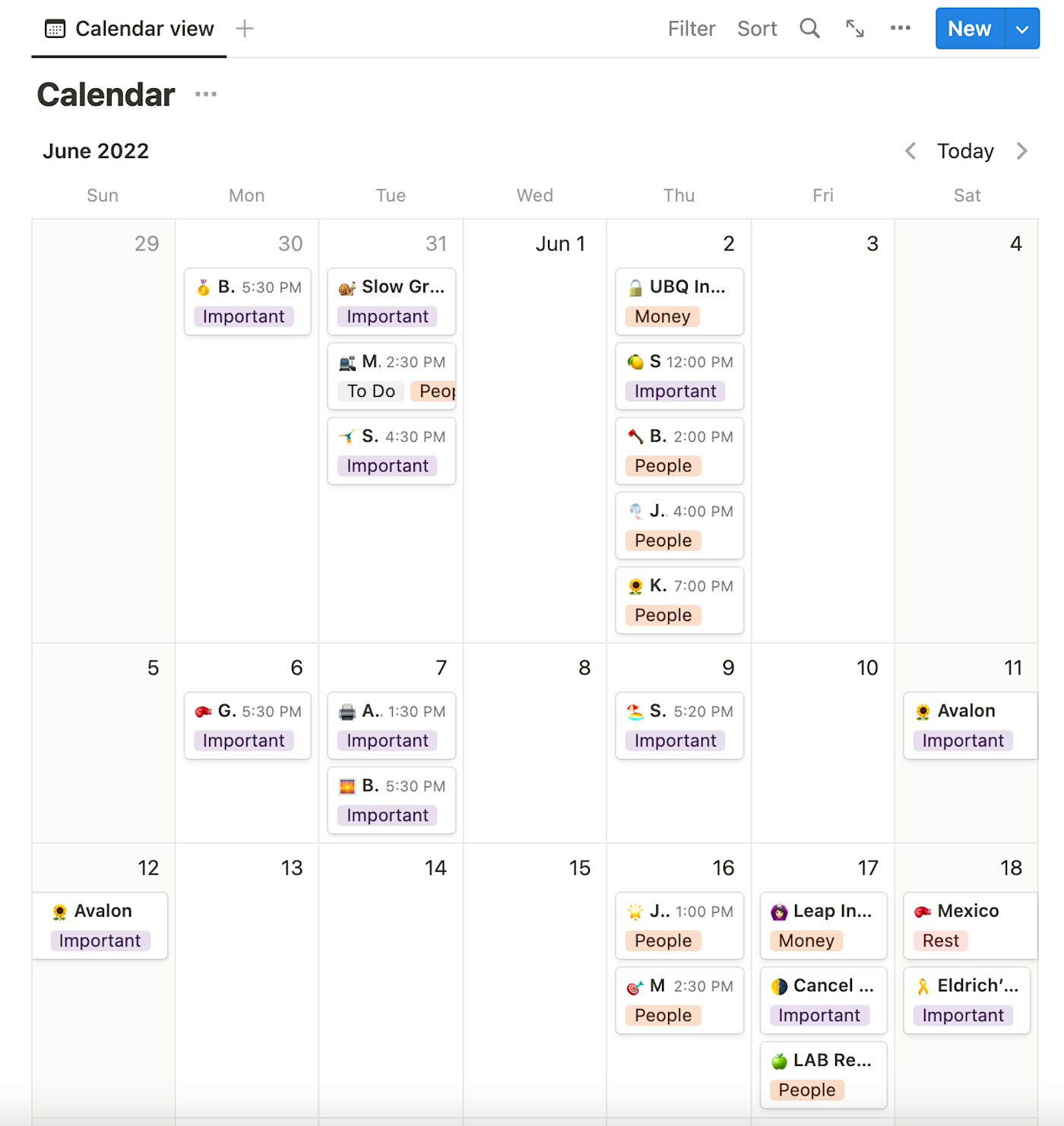
The average freelancer’s calendar can be a chaotic and treacherous place. Because we’re often juggling multiple clients, keeping up with deadlines and phone calls is like mental gymnastics. Enter Notion’s Calendar template.
What’s fabulous about this calendar is you can tag events. I label invoice days with the tag “Money” and client phone calls with the tag “People,” but you can personalize it to best fit your schedule.
Idea database (a.k.a. creativity generator)
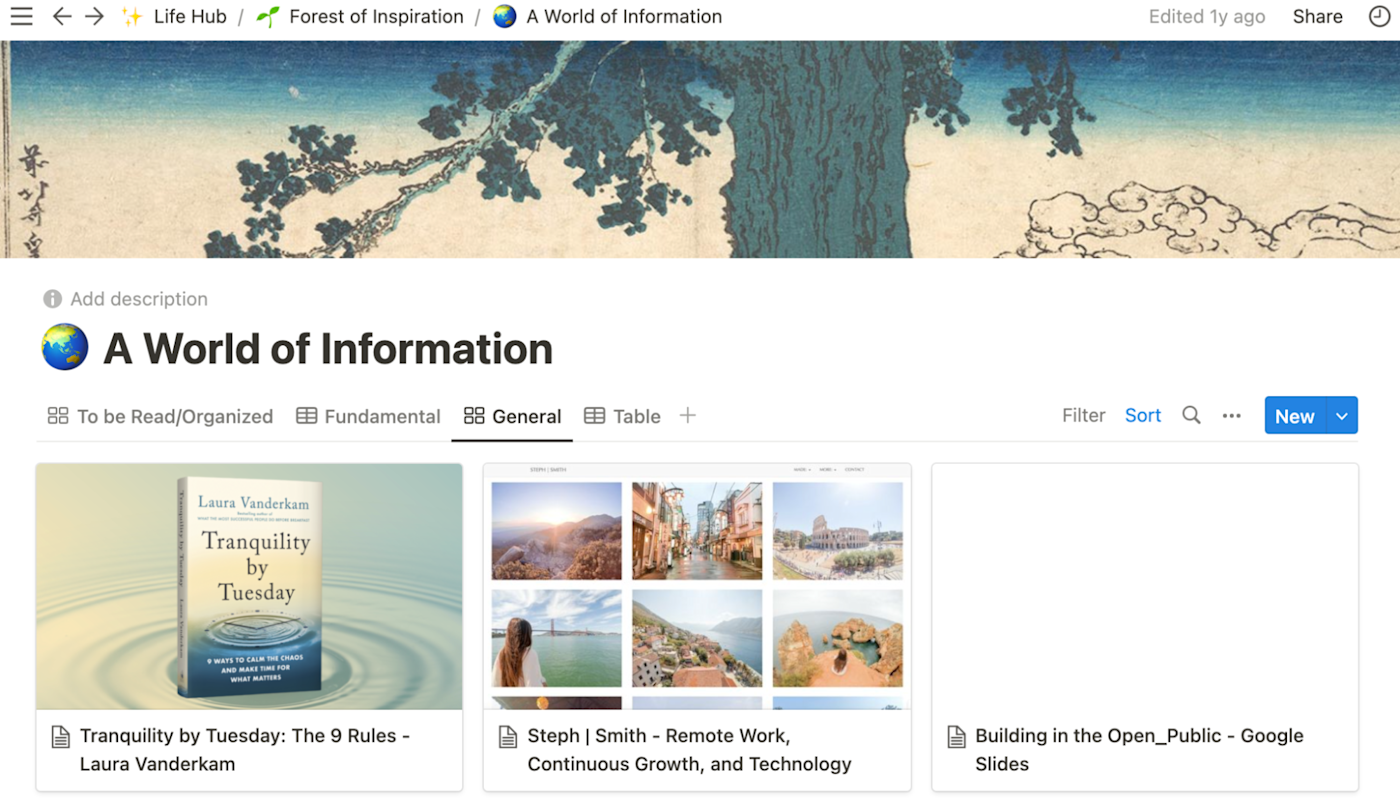
My favorite database in Notion is what I call “A World of Information.” It’s a page that stores all the wacky, weird, and whimsical stuff I find online. Because a good amount of my assignments require curating relevant pieces of content, this database is a lifesaver. I also use it as an inspiration board for future articles. You can find the clipboard here, and a basic template here.
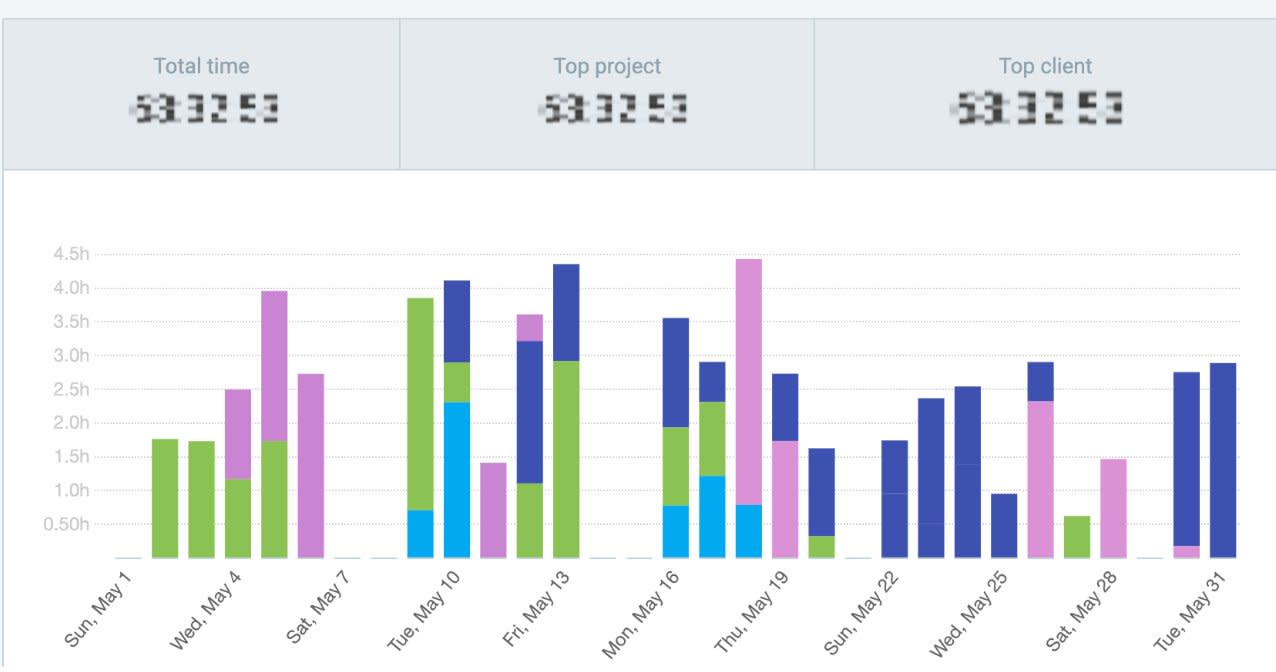
Clockify is a free time tracker app. I resisted setting it up in my business for a year, but once I caved, I noticed a difference almost immediately.
One primary benefit: once you’re aware of how long something takes, you’ll have a better idea of how to price it. For example, I did the copy for a landing page and was flabbergasted upon discovering it took twice as long as I’d anticipated. This raised my rate for these types of assignments by $500. Similarly, I learned that even just sending pitches cost me three unpaid hours a week, so I started building that into my prices.
Turning on Clockify was also a productivity boon. It became part of my “ritual” before diving into assignments (alongside coffee and a Lo-Fi playlist). These actions signaled to my brain that it was time to work, helping me slip into a flow state.
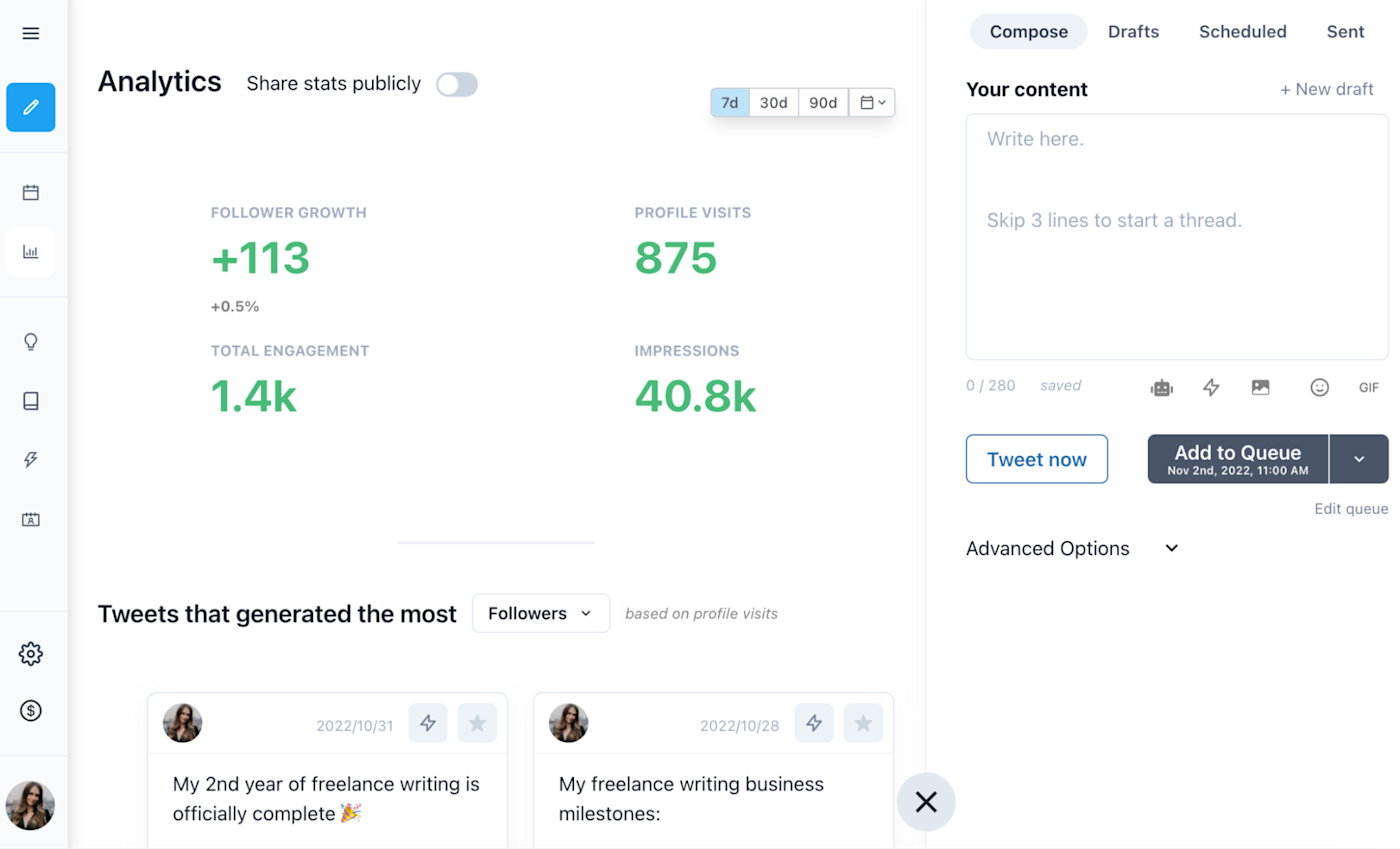
I’ve only been freelancing for two years. It’s not a ton of time to build a reputation, but I’ve managed to find plenty of clients, many of whom came to me, instead of the other way around. For that, I can thank Twitter.
No, Twitter isn’t essential to running a successful business, but it’s a watering hole for founders, entrepreneurs, freelancers, and reporters. Building an audience is a solid way to build credibility and sell yourself. I’ve been using Tweethunter to help run my Twitter. The app allows you to schedule Tweets, has AI to help generate ideas, and provides an analytics dashboard to find out what content is working (or not).
Twitter isn’t your only option—as an example, here’s how another freelancer used LinkedIn to build her client base. Regardless of what platform you choose, remember that you need to be intentional about your social media strategy for it to work.
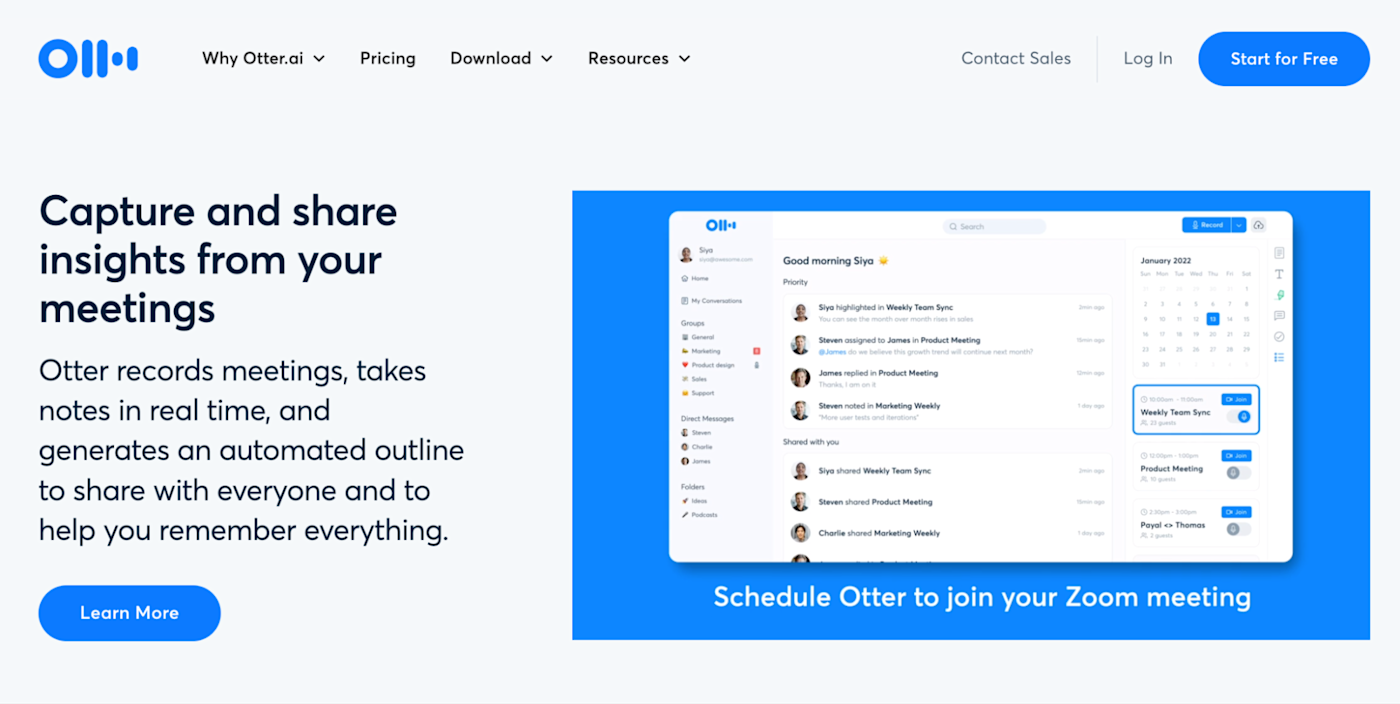
Otter automatically transcribes your recordings in real time. If you’re writing a piece that requires an interview, you’ll want to record your conversation. Trust me: you won’t “remember” it later. Your writer brain is meant to generate ideas, not hold them.
Here are some other transcription apps to consider, depending on how you record your interviews.
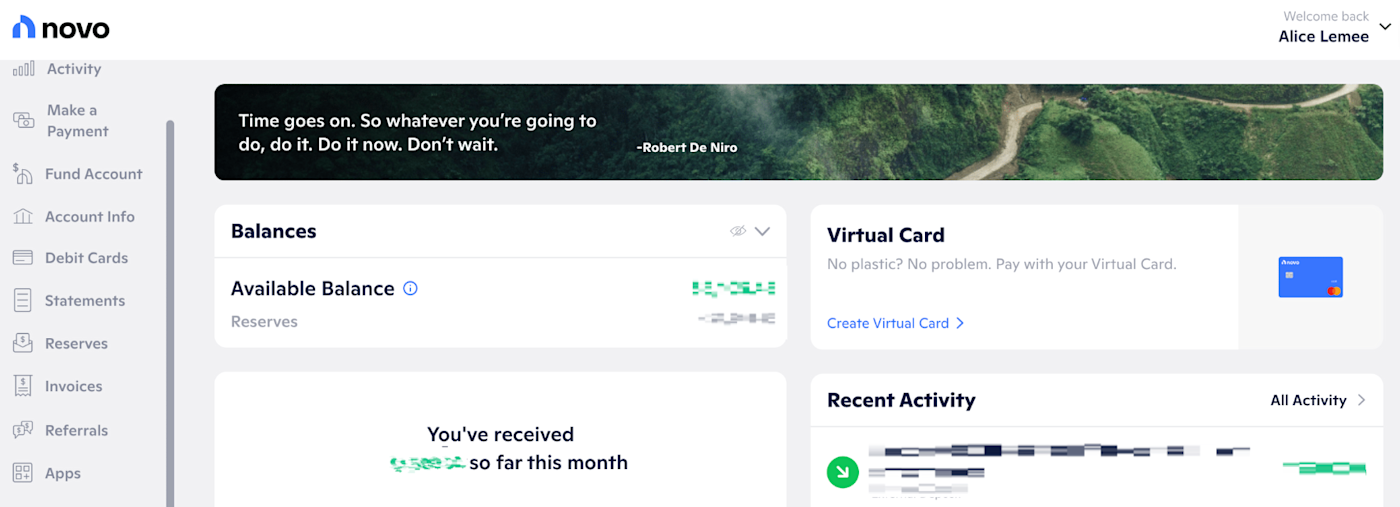
I remember the first time I sent an invoice on PayPal and flinched once I saw its 3.49% + $0.49 per transaction fees. I switched to Wave, which wasn’t that much better—it still guzzled 2.9% + $0.60 with each invoice. Last November, I switched to Novo—a business banking platform—and haven’t looked back.
Because Novo earns a profit from storing your cash, it charges zilch for sending or receiving invoices. This upside has saved me hundreds of dollars. It’s also helped me organize my finances. Every business-related expense goes under my Novo card, which allows me to have one neat place to house my income and purchases—very convenient when tax season rolls around and I need to round up those tax write-offs (IYKY).
Now that you’ve got tools to set up your home base, grow your social media, and tidy up your finances, it’s time to get into another essential component in freelancing: under-promising and over-delivering. This means setting reasonable expectations for your clients and then going above and beyond. If done well, this leads to repeat or even retainer clients.
If you’re writing for a publication that uses GIFs in its content, the art of finding the right GIF can turn a “this looks good” from your editor into an “I loved it!”

Excalidraw is a virtual whiteboard where you can sketch hand-drawn diagrams. In a world where plagiarism is abundant, producing original content is a rare (and valuable) skill to have.
“But I’m a writer, not a designer!” you say. Oh hey, same here. You don’t need to have artistic abilities to create visuals for your content. This is about illustrating concepts to make your articles more digestible, and it can be as simple as sketching an email template, like how I did for a client of mine (see below).
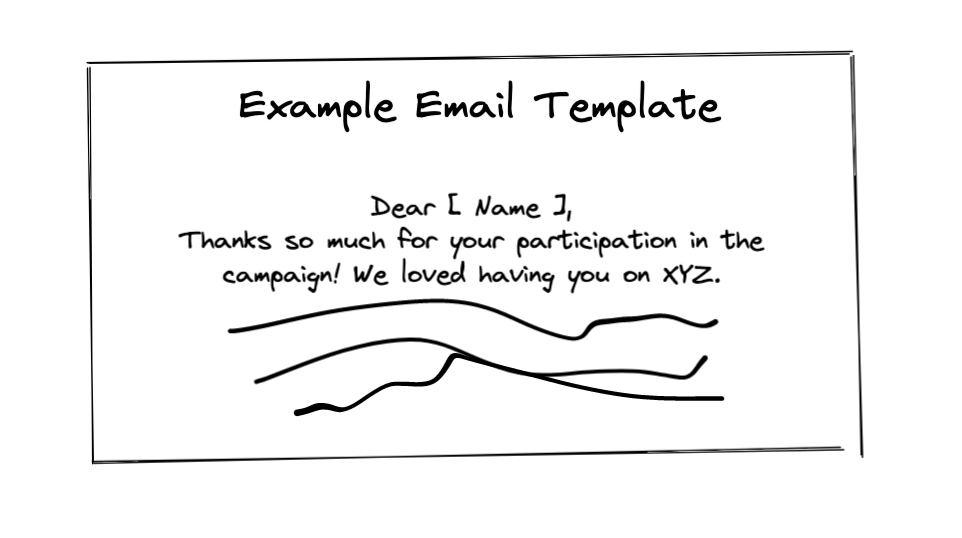
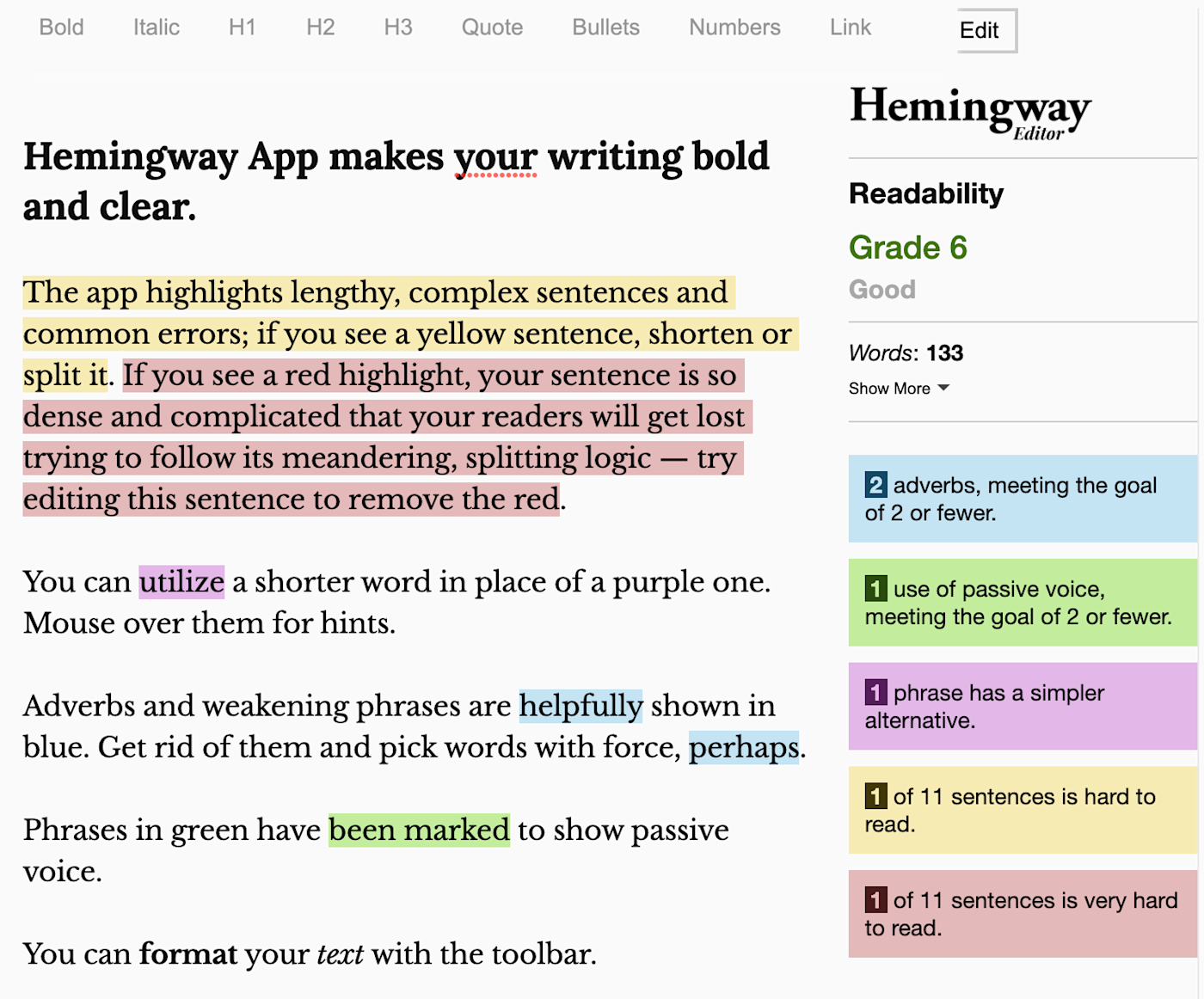
Hemingway transforms your writing by helping you eliminate things like passive voice, too many adverbs, and overly complex sentences. The result is a clear and concise article that’ll have clients excited to hire you again.
As a freelancer who’s subcontracted before, I’ve received several articles riddled with spelling errors and confusing sentences. While it’s not the end of the world, those who do spend time fine-tuning the details stand out—and are more likely to get referrals and recommendations.
Find the right tools for your business
Your tech stack won’t be identical to mine, so take the time to find the tools that will help you grow your business. New tools are coming out of the internet’s conveyor belt every day.
Right now, I’m experimenting with artificial intelligence tools such as Lex to help speed up the writing process. It’s not perfect, but I’ve found that it’s accelerated my process by up to 30%. So who knows? In the future, an artificial intelligence writing tool might be in every freelance writer’s toolkit, giving us space to write more (with a little help from the robots).
[adsanity_group align=’alignnone’ num_ads=1 num_columns=1 group_ids=’15192′]
Need Any Technology Assistance? Call Pursho @ 0731-6725516




